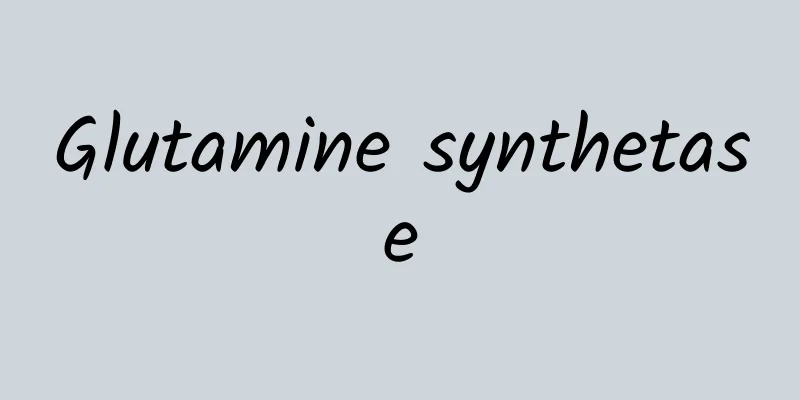What does blood stasis mean?

|
We all know that any blood-related disease in life is relatively serious and must be adequately treated. You know, blood diseases sometimes seem mild, but they may pose a life-threatening threat to the patient, such as leukemia, which is the most frightening disease for people, or cardiovascular and cerebrovascular diseases. So in clinical practice, there is a disease called blood stasis. What does it mean? Blood stasis is a vascular disease that occurs in the extremities. It is mostly caused by paroxysmal spasms of the arteries at the ends of the limbs, causing the skin to become pale due to ischemia or cyanosis due to local hypoxia. Traditional Chinese medicine believes that blood stasis is a disease caused by evil invading the blood. It is caused by deficiency of Qi and blood, sleeping in the wind, or sweating due to exertion, which allows wind evil to invade and block the flow of Qi and blood. "Golden Chamber Synopsis·Blood Stasis, Deficiency and Fatigue, Pulse Symptoms and Treatment": Question: How does blood stasis disease come from? Answer: A noble person has weak bones and strong skin. He sweats due to fatigue and is shaken from time to time when lying down. If he is exposed to the breeze, he will get the disease. Volume 1 of Treatise on the Causes and Symptoms of Various Diseases states: “Blood stasis is caused by the infiltration of pathogenic factors into the yin meridians due to physical weakness. Blood is yin, and when pathogenic factors enter the blood, it causes stasis, which is called blood stasis. Causes It is caused by deficiency of Qi and blood, sleeping in the wind, or sweating due to exertion, which allows wind evil to invade and block the flow of Qi and blood. Clinical manifestations Most of the symptoms are numbness of the body, pain in the limbs, weak and wiry pulse, and a small and tight radial pulse. Depending on the cause of the disease, differences in constitution, and the body's response to external pathogens, five manifestations can be seen clinically, including spleen and kidney yang deficiency, yang deficiency and cold stagnation, qi stagnation and blood stasis, qi deficiency and blood stasis, and blood stasis and heat blocking the collaterals. Treat according to syndrome differentiation 1. Spleen and Kidney Yang Deficiency Symptoms: When exposed to cold, the limbs become very cold, the skin of the fingers and toes becomes pale or bluish, the limbs become numb and painful, the waist and knees become sore and cold, and the person is afraid of cold. The tongue is pale, the tongue coating is white, and the pulse is deep, thready and weak. Treatment principle: Invigorate Qi and warm the meridians, harmonize the circulation and unclog the collaterals. Main prescription: Huangqi Guizhi Wuwu Decoction with modifications. Prescription: Astragalus, cinnamon twig, white peony root, salvia miltiorrhiza, asarum, roasted licorice, and ginger. Alternative prescription: Yougui Pills, suitable for those with insufficient kidney yang. Prescription ingredients: processed aconite, cinnamon twig, epimedium, dodder seed, cornus officinalis, antler glue, and wolfberry. If the skin is scratched, add safflower and earthworm; if there is skin ulcer, add dandelion; if there is spleen deficiency and diarrhea, add Poria and Atractylodes; if the cold evil is severe, add dried ginger and fennel; if the Qi is blocked, add costus root and tangerine peel. Although this syndrome is mainly characterized by deficiency of Yang Qi, which is equivalent to the early stage of the disease, Yang deficiency will lead to weak stimulation, which can easily cause Qi stagnation, slow blood circulation, and blockage of blood vessels, which can induce or aggravate the disease. Therefore, while warming the meridians, it is appropriate to add agents to regulate Qi and blood. 2. Yang deficiency and cold stagnation Symptoms: cold hands and feet, fingertips like white wax, followed by blue purple, accompanied by dizziness, cold body and fear of cold, late menstruation, scanty and light-colored menstruation, pale tongue with white coating, and deep and thready pulse. Treatment principle: Warming Yang and dispelling cold, activating blood circulation and unblocking meridians. Main prescription: Danggui Sini Decoction with modifications. Prescription: Angelica sinensis, white peony root, cinnamon twig, asarum, tongcao, evodia rutaecarpa, and licorice. Alternative prescription: Wenjing Decoction, which warms the meridians and dispels cold, removes blood stasis and nourishes blood. Ingredients: Angelica sinensis, Evodia rutaecarpa, White Peony Root, Ligusticum chuanxiong, Ginseng, Cassia Twig, Cortex Moutan, Licorice. If the skin on the extremities is pale and cool, accompanied by cold pain and numbness, but there is no fever, no thirst in the mouth, the tongue is pale with white coating, and the pulse is deep and thin. Yanghe Decoction with modifications. If the cold is severe and the patient has cramps and pain, add Chuanwu and Scolopendra subspinipes; if the patient has pain in the fingers, add turmeric slices and processed Rumosum; if the patient is very afraid of the cold, add Aconite root and Cinnamon bark; if the pain is obvious, add Corydalis yanhusuo and earthworm. This type of syndrome is based on Yang deficiency and symptomized by evil cold blocking the meridians. When treating the patient, attention should be paid to treating both the symptoms and the root cause, strengthening the body while not forgetting to eliminate the evil, but also not damaging the body when eliminating the evil. Although it is based on Yang deficiency, it is not appropriate to use only pungent and hot products to warm the Yang and eliminate the cold, because this type of syndrome is often accompanied by deficiency of Yin and blood, so the main point should be to warm the meridians and dispel the cold, so that the Yang qi can flow freely and the cold evil in the meridians can be removed. In addition, the medicine should be stopped when the disease is cured, and excessive dosage should not be used. |
<<: What does it mean that Chinese medicine should avoid spicy food?
>>: What is the function of Jianjing point?
Recommend
TCM treatment of lumbar disc bulging
For patients with recurrent lumbar disc herniatio...
Symptoms of fungal intestinal infection
The name of intestinal fungal infection is fungal...
The efficacy and function of Yunnan Dendrobium
Dendrobium officinale flower, also known as Dendr...
Can I eat onions while drinking herbal medicine?
Onions and garlic are relatively spicy foods, and...
Acid reflux in the stomach while sleeping
Everyone is familiar with stomach pain and acid r...
How to treat chronic gastritis? Diet therapy and medical treatment
Chronic gastritis is mainly caused by bacteria in...
Symptoms of Bronchial Asthma
People who suffer from asthma know that in certai...
Tonsillectomy cured bad breath
Bad breath is a very embarrassing thing. When you...
How to calculate the number of times Chinese medicine is boiled twice?
The decoction of Chinese medicine is an important...
What are the symptoms of cor pulmonale?
Cor pulmonale is a common disease, which is gener...
What to do if your stomach gets bloated when it gets cold
Summer is here, and it's time to eat fruits, ...
What are the effects and functions of myristic acid?
For most consumers, they are familiar with the wo...
What to do if a tooth extraction is infected
Tooth extraction is quite common in our daily lif...
What are the methods of TCM to treat degenerative arthritis?
Many elderly people suffer from diseases such as ...
What are the symptoms of cystitis?
Cystitis is a reproductive disease that can adver...









